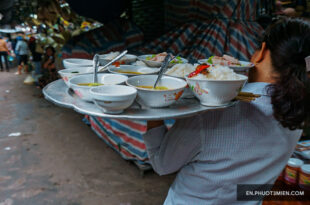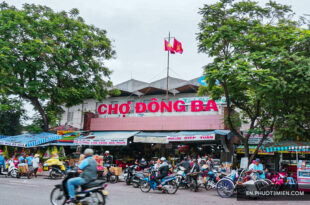Female Icons of Vietnam Through The Centuries
Do you want to know more about the iconic women of Vietnam? Take a peek at these important figures and maybe you’ll understand this country a little better.
As you visit the peaceful Vietnam today, have you ever wondered about the women who put their whole life into building and protecting this country? In this article, I will share with you the real stories about several of our most significant ladies of Vietnam throughout history. Their contributions range from swords to words, and to business!
TRUNG SISTERS (AD 12 – AD 43): DRAMATIC
For the very first time in history, these two ladies defeated the men in power and took over the country. Meet Madam Trung Trac and Trung Nhi. These sisters stood up against the domination of the North (Han Dynasty) over Vietnam in 40 AD and took control of Vietnam for three years.
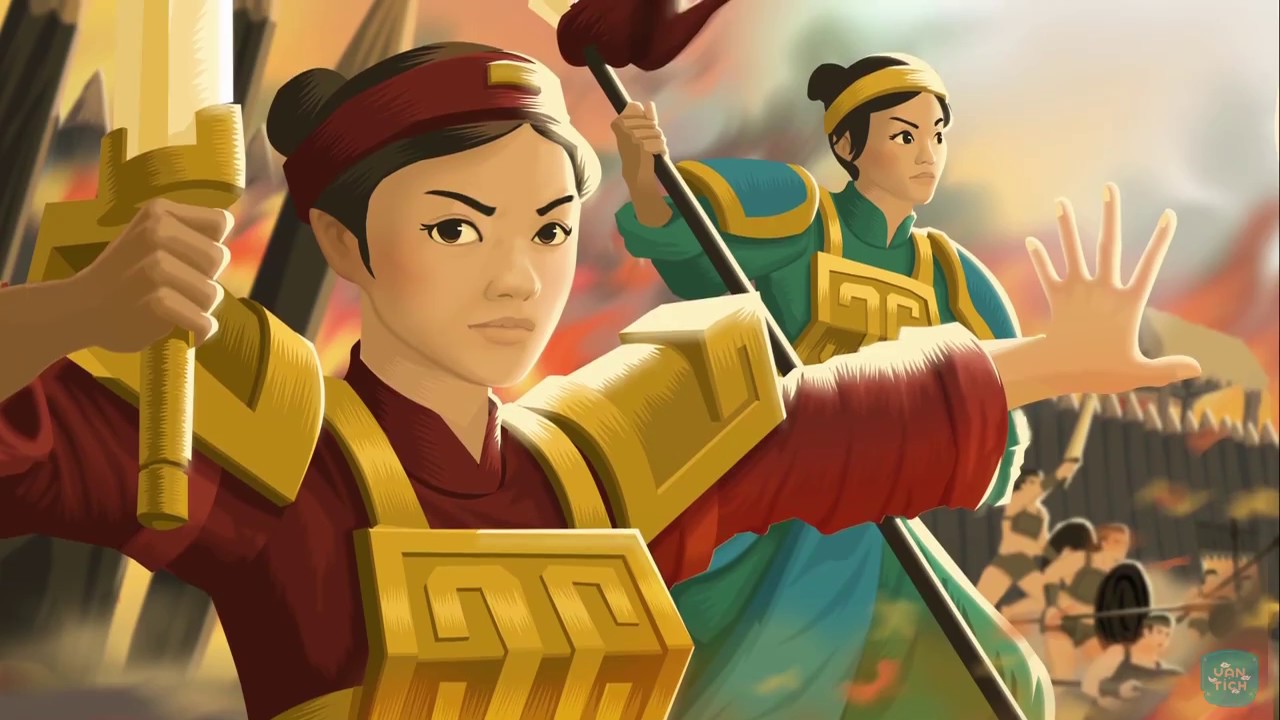
Since their childhood, they witnessed how cruel the North had been treating their people. The resentment grew. Besides, being the daughters of a general, Trung Trac and Trung Nhi were able to practice the art of warfare and improve their fighting skills since a very young age. Trung Trac was married to Sr. Thi Sach. He later fought against the North’s policy of cultural assimilation. In his fight to stand up for his people, he was executed by invaders.
The death of Sr. Thi Sach was like a drop into the full glass of Madam Trung’s resentment. In 40 AD, the sisters led an intensive rebellion against Han Dynasty. Their victory marked the very first independent Vietnam from the North since it was invaded. Unfortunately, three years later, being extremely outweighed by the invaders’ army, the two queens lost their capital. They committed suicide in Hat river.
LADY Y LAN (? – 1117): SOPHISTICATED
Lady Y Lan was the only wife of a king that stepped up as a regent while he was still ruling the country and away at battle! People usually call her Lady Y Lan, or Empress Mother Linh Nhan.
King Ly Thanh Tong first saw his future wife in an orchid garden, when she was still an unknown village girl. The king was so impressed by her wise words and thoughtful manners that he chose her as a wife. Here name Y Lan means Leaning on the Orchid.
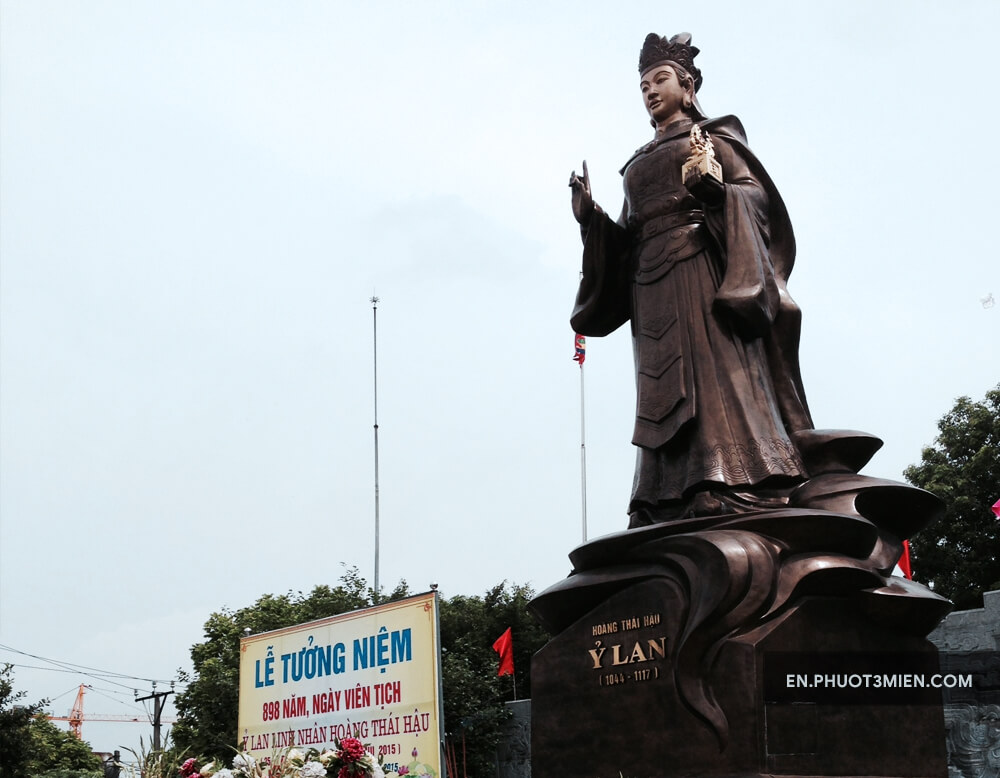
In 1069, King Ly Thanh Tong’s army left the capital to fight against the Champa kingdom. Lady Y Lan ruled the country while he was absent. She successfully maintained and even improved the life of the people during that term, regardless of the battles happening in the South. It helped stabilize the king’s mind, contributing to the victory of the war against the Champa. In addition, she cleverly brought Buddhism into the lives and homes of the Vietnamese people, hence harmonizing society. She has since been referred to as a Bodhisattva.
After the king passed away, Lady Y Lan became regent again as her son – King Ly Nhan Tong – was only six. She was then known as Empress Mother Linh Nhan. This regentship resulted in several controversies, because she turned another Empress Mother down to take over this position. However, Empress Mother proved to be very wise and humanitarian in the way she ruled the country. In 1103, she granted money to poor women who were selling themselves as wives of widowers. In 1117, she implemented a law against killing water buffalo, since buffaloes are an essential animal of agriculture.
PRINCESS HUYEN TRAN (1287 – ?): ARDUOUS
Do you know how much princess Huyen Tran cost? She cost two provinces: Quang Nam and Quang Ngai! So if you ever enjoy a fresh morning in Tra Que Village (Hoi An), don’t forget this name!
Princess Huyen Tran was the daughter of King Tran Nhan Tong, the younger sister of King Tran Anh Tong. In 1306, the old Cham King Jaya Shinharvaman III offered to cede two provinces known as Chau O and Chau Ly to the Dai Viet Kingdom (now known as Quang Nam and Quang Ngai province of Vietnam). Dai Viet had to pay a price in return. The country had just been through a huge war against the Mongolian army, hence the national treasury was limited.
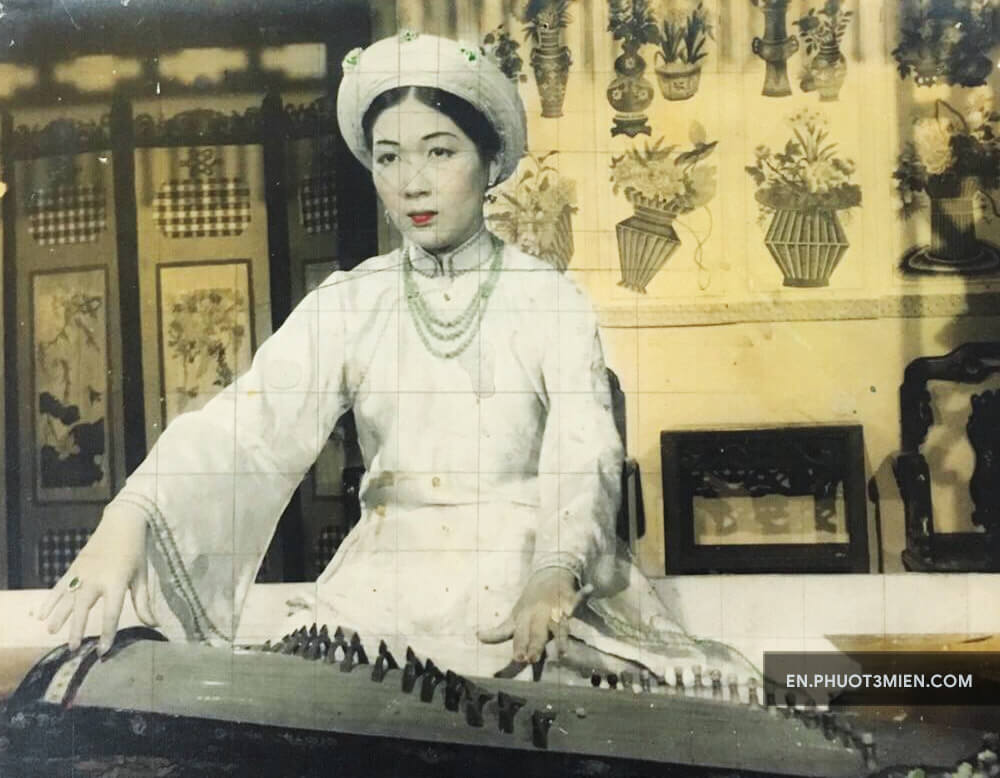
This led to the tough decision of a political marriage. In June of that year, Princess Huyen Tran had to marry the Cham king. Political marriages happened a lot during the feudal time in order to create better allies, yet this was very sad for a young princess since she had to marry such an old man. The Cham King died a year after the wedding. According to the Cham rule, Princess Huyen Tran (then known as Queen Parameswari) had to commit suicide, although she already gave birth to a prince.
Nonetheless, the Dai Viet Kingdom acknowledged the dangerous situation of their princess. King Tran Anh Tong sent a group of rescuers to the Cham and successfully rescued princess Huyen Tran. There are no records of her life after leaving the Cham Kingdom. Many believe that she chose to become a nun and lived a quiet life.
DOAN THI DIEM (1704 – 1748) – TALENTED
The most remarkable contribution of Lady Doan Thi Diem was her invaluable poems, most of these poems were in the voice of the noble ladies as they watched their husbands leave to fight in the front-line. In the feudal time, the rights of females were limited and their voices were not carefully listened to. Therefore, a well-known and well-respected female poet was rare!
KKday is a travel APP platform offering over 20,000+ online products such as: tickets for amusement parks, outdoor services, sightseeing tours, culinary experiences, transportation, accommodation, courses, and local culture... Currently, there is a summer promotion with discounts up to 50% and coupons up to 250K VND off.

Attractive discount codes such as: 100K VND off for new accounts, 150K VND off summer promotion, 250K VND off, KKday birthday celebration...
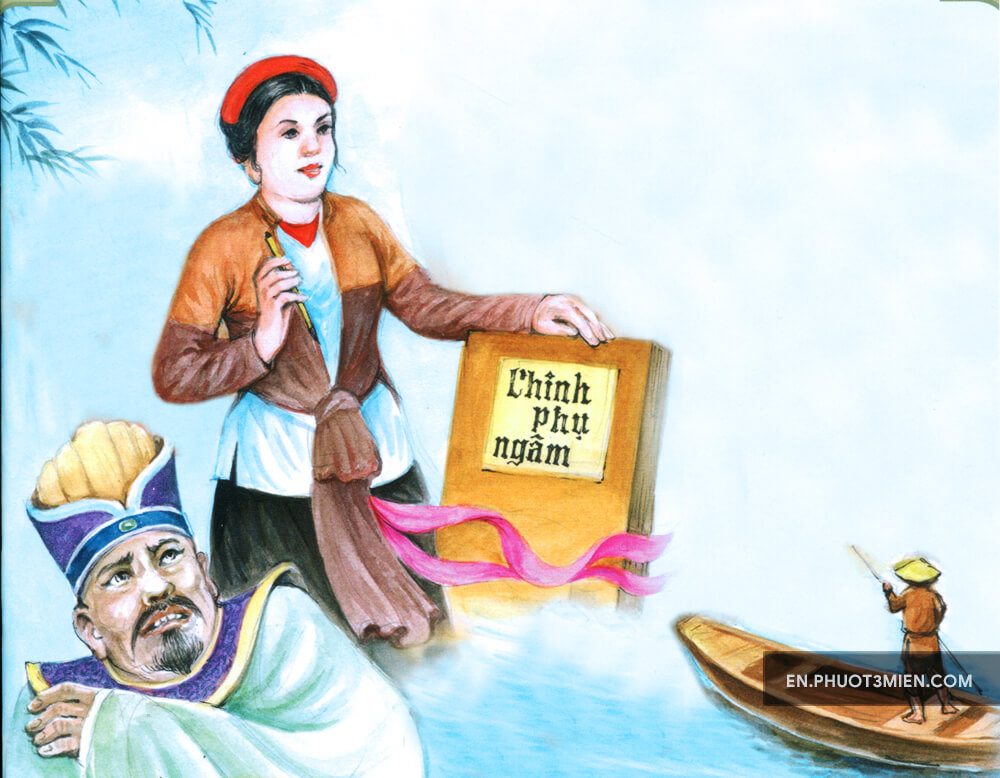
At a young age, Lady Doan Thi Diem was famous not only for being a beautiful lady, but also for her talent in literature and medicine. When she was 16, her foster father intended to marry her off to Lord Trinh, however she refused.
After her father passed away in 1735, Doan Thi Diem bore the responsibility to earn the living for her mother, nieces, and nephews. She worked hard as a teacher and a pharmacist. Not too long afterward, she was selected to be the teacher for the royal children and remained in that position until 1739.
EMPRESS MOTHER TU DU (1810 – 1902): WISE
Imagine a queen who lives modestly, monitores the country wisely, treats her people judiciously, and trains her son thoroughly. This is Empress Mother Tu Du.
She became a royal bride at the age of 14. Shortly after her husband became the king (King Thieu Tri), she was given power to rule the royal harem. She is known for having treated people very well, including other wives of the king. When a person committed a mistake, Lady Tu Du preferred to correct them rather than punish.
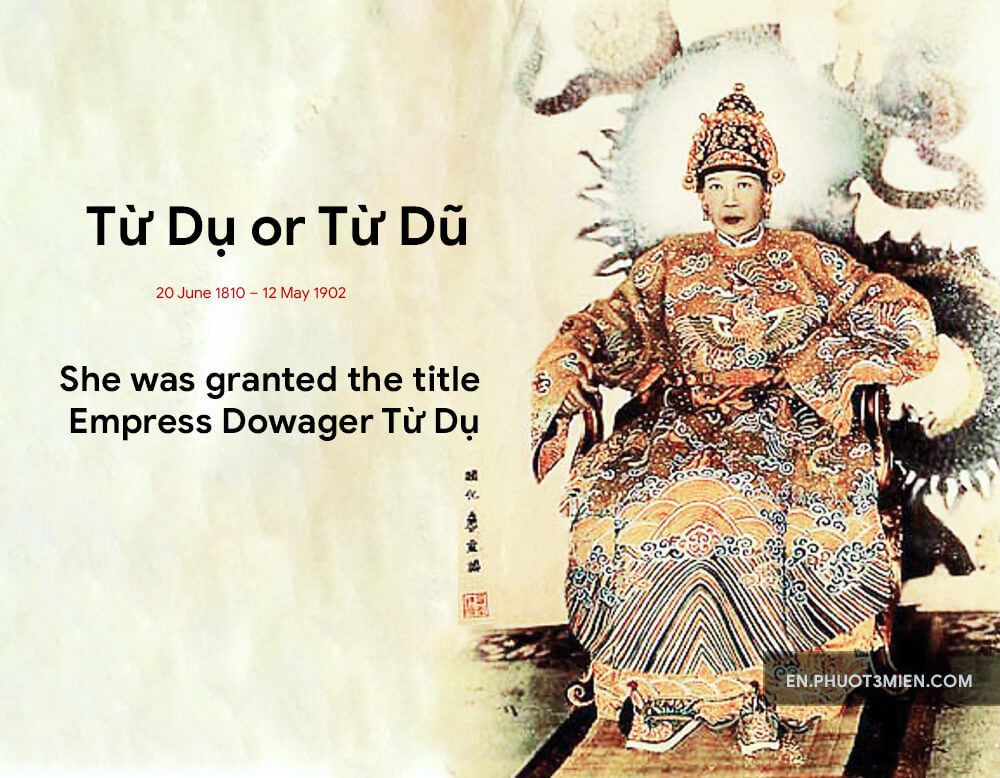
After King Thieu Tri passed away, Prince Hong Nham, the son of Lady Tu Du, took over the crown. He was known as King Tu Duc. Lady Tu Du became the Empress Mother. Her morality and wisdom continued to shine under her son’s reign. Once, the king indulged himself in entertainment and forgot the royal conference. Empress Mother got angry. When the king apologized, she said: “The country has plenty of issues to solve, how could a king pay no attention and indulge in entertainment? You can feel guilty to me, but more importantly, you should feel guilty to your people.”
In 1850, King Tu Duc was still addicted to entertainment such as hunting and enjoying performances. Scholar Pham Phu Thu submitted advice to the king, and unfortunately it affected the king’s self-esteem. The scholar was heavily reprimanded. Empress Mother, upon hearing about the situation, asked the king:
“What did the scholar gain when he advised you?” she asked.
“He gained nothing, mother. Yet I believe it’s a crime for a person to blame a king,” he responded.
“Then, after you degraded him, does he hold any resentment toward you?”
“I haven’t heard of any resentment from him. I only know, every evening, he usually sails on the river, enjoys nature, and creates poems.”
After a while, Empress Mother explained to the king of how treasurable it was to have a mandarin with integrity like scholar Pham Phu Thu. King Tu Duc realized his fault, and scholar Pham Phu Thu later became a very supportive mandarin in the Nguyen Dynasty.
There are many more stories about Empress Mother Tu Du. She was also praised for her modesty. She treasured the very minimal amount of items she used, since they were made from the tears and sweat of her people.
Today, one of the most important hospitals in Ho Chi Minh City is named after her.
SUONG NGUYET ANH (1864 – 1921): TOUGH
Suong Nguyet Anh was the first female editor of Vietnam. When Vietnam was dominated by the French, she sold her real estate to fund the Vietnamese youth rebellion known as the Dong Du army to study abroad in Japan. In 1917, she published the first newspaper for Women in Vietnam, named The Women in Common (Nu Gioi Chung). She stood for the women’s side and spoke against the invaders.
Suong Nguyet Anh was the fourth daughter of the famous scholar Nguyen Dinh Chieu. Since a young age, she was widely recognized for her talent, morality, and beauty. She got married at the age of 24 and gave birth to a daughter. Yet, shortly after, her husband passed away. There are not many records of her life from then until the time of the Dong Du movement. We only know that, since the Dong Du rebellion in 1906 until her death in 1921, she contributed her whole life to the community mission, from funding the campaign to publishing the newspapers encouraging national love.
In 1919, Lady Suong Nguyet Anh returned to her hometown (Ba Tri district, Ben Tre province) due to being visually impaired. She kept teaching literature and working on medicine until she passed away in 1921.
GENERAL NGUYEN THI DINH (1897 – 1992): INDOMITABLE
Born into a peasant family in Ben Tre province, Ms. Nguyen Thi Dinh followed the Vietnamese revolution party at the age of 16. After that, her legendary life unfolded. Roughly in her early twenties, her husband was captured and killed in Con Dao prison. She decided to leave her little daughter at home with her grandparents, and devote her whole life to the military.
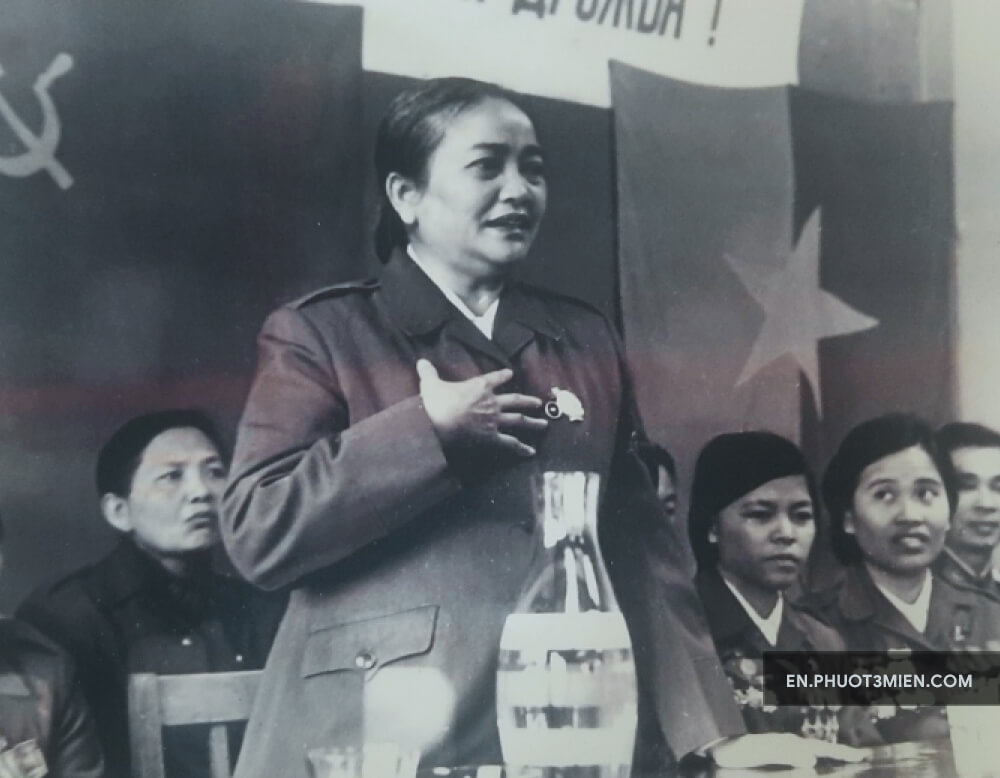
There are endless stories about this lady general. The most remarkable one was in 1959, when the contemporary government launched the massacre in the Mekong Delta to outweigh the Viet Minh army. The lady general led her force standing against the bloody attack. From their first rebellion at Mo Cay district, Ben Tre province, the campaign spread widely through the Mekong Delta. The Viet Minh side eventually won the political battle. Ever since, people remind each other about a force of ladies who stopped the huge massacre. It was the force led by general Nguyen Thi Dinh, the army was later called the “Long-Hair Army”.
President Ho Chi Minh gave her four words: “Heroic, Indomitable, Faithful, Laborious”. This courageous lady was the first female general of Vietnam People’s Army during the Vietnam War (20th century). She was also known as the most important Southern revolutionary woman in the war.
VO THI SAU (1933-1952): BRAVE
All the heros and heroines are the brave ones, yet Vo Thi Sau was a little more special. She was sentenced to death before she was 18, and faced death with the most cavalier attitude.
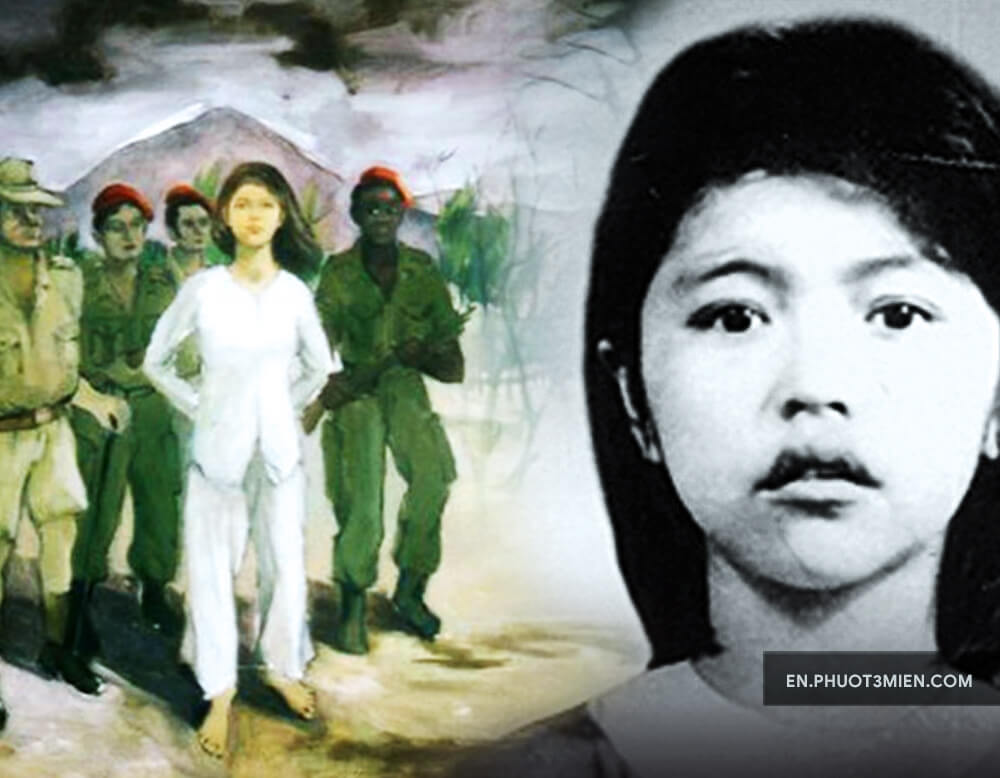
Vo Thi Sau joined Viet Minh as a contact for a local guerilla group at the age of 14. When she was 16, she threw a grenade at a Vietnamese canton chief – a local man responsible for executing many suspected Viet Minh sympathizers. The murder failed and she was captured by French authorities. The authority imprisoned Vo Thi Sau in three different facilities. When it came closer to the time of her execution, she was sent to Con Dao islands. There, she kept singing rebellion songs to encourage the attitude of the prisoners.
On January 23rd 1952, the guards walked Vo Thi Sau to the place of execution. No fears, to tears, she showed an amazingly calm attitude on the way. The young lady refused to wear a blindfold, insisting on holding her beloved country in her eyes until her very last breath.
MAI KIEU LIEN (1953): PROGRESSIVE
Forbes listed Mai Kieu as one of the 50 most powerful businesswomen of Asia. Her contributions, tough decisions, and success explain why! She refused many profitable offers from foreign companies and overcame many opponents when she decided to buy back American companies bearing losses. She went into the hostile area of Iraq to study new markets. And she was also the one who led a state company of Vietnam to be one of the most domestic fruitful joint stock companies. Her company has put Vietnam on the map of the global dairy industry.
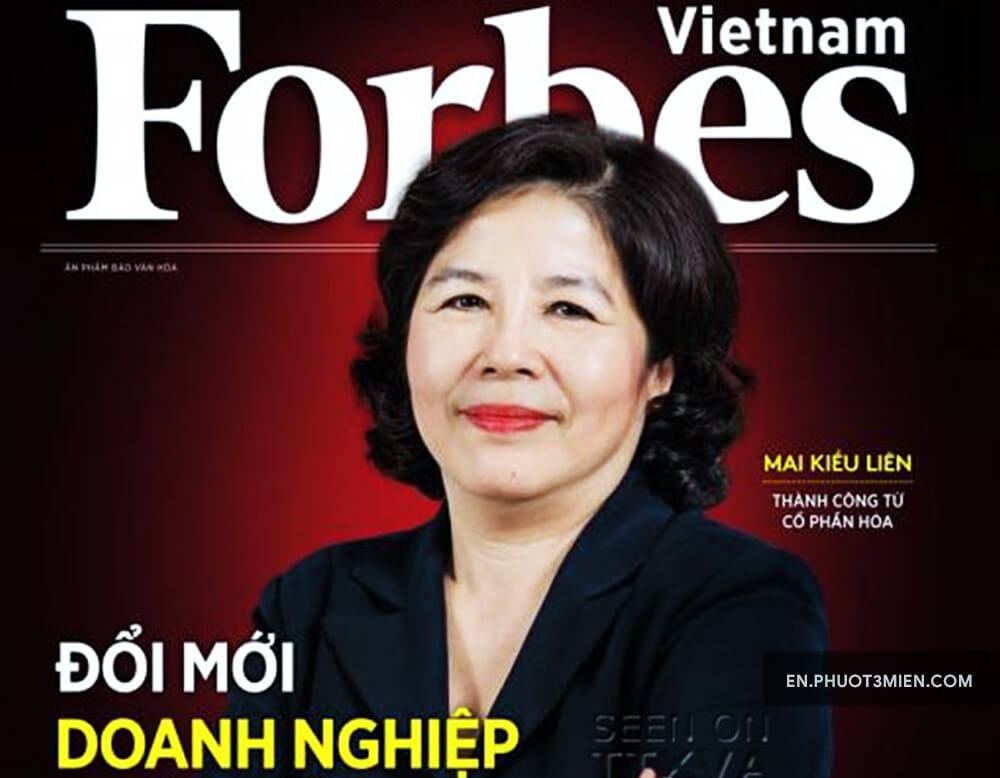
This is Madame Mai Kieu Lien, chairwoman and former CEO of VINAMILK. If you settle down in Vietnam and wonder which dairy brand you should invest your trust, VINAMILK should be considered. If you visit Da Lat and hope to take a tour through an organic cow farm, look into VINAMILK’s offer (certainly, there is a big difference in price between their organic milk and normal milk).
Not only famous for being a fruitful company with little controversies, VINAMILK also contributes to a lot of social services, most of which focus on scholarships. The company has two important funds: “Growing Vietnam” and “A Million Trees Vietnam”.
Throughout history, hardly are we fully aware of how much the women have sacrificed for the peace and growth of Vietnam. I grew up listening to the uncomplete stories of princesses who were sent to the enemy just to rescue the army. I knew National Mothers, many of them are still alive today in Ho Chi Minh City, who watched their husbands, their sons go to the rebellion forces, and they never welcomed them back. They are not listed here because people do not know their names, and because there are many women like them. They are listed here because they deserve recognition and respect. If you happen to be in Vietnam during our Women’s Day, we hope you enjoy this country for the peace it brings. We also hope you love it a little bit more because it is built from the hearts of Vietnamese women.
Keep reading other articles on Travel Blog to understand more about culture and history in Vietnam.
A Brief Period of Vietnamese History: Hoa Lu Ancient Capital, Ninh Binh
Vietnamese Traditional Costumes: History, Culture and Where to Find Them





